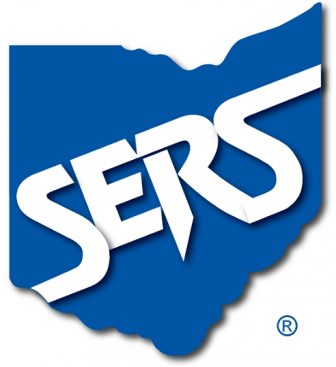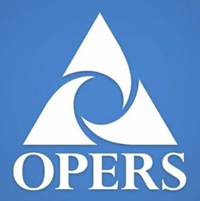OEA Pres. Scott DiMauro: Pledge to be an Education Voter
October 1, 2019 | VBlog By OEA President Scott DiMauro
Pledge to be an Education Voter
Dear Colleagues,
Please take a few minutes to view my latest weekly update on things happening in and around OEA.
This week’s message includes reflections on a fascinating new Ohio State University study on student learning, early opportunities to support pro-public education candidates from both parties in 2020 (including as convention delegates), and a reminder on OEA-RA delegate election deadlines.
Please click on this link (https://educationvotes.nea.org/presidential-2020/2020pledge/) to pledge to be an education voter and then share with your fellow members.
I welcome your feedback. Please contact me if you have questions, would like an officer to visit your local, or have anything to share.
Have a good week!

Scott DiMauro
President
Ohio Education Association
Related Reading
- 09.28.2019 | Columbus Dispatch: Kids in poor schools show same academic growth as others, Ohio State study finds| “It confirms the fact that we’ve got a lot of really good teachers who are doing really good in our high-poverty schools,” said Scott DiMauro.
Sept. 2019 OEA Retirement Systems Update
STRS Investment Returns Slightly Below Assumed Rate
 STRS posted an investment return of 7.13% for fiscal year 2019 which ended on June 30, 2019.
STRS posted an investment return of 7.13% for fiscal year 2019 which ended on June 30, 2019.
This rate of return fell slightly below both the actuarial assumed rate (7.45%) and the total investment benchmark return of 7.30%.
The FY 2019 return followed two positive years of 9.57% in 2018 and 14.29% in 2017.
The total impact on the pension fund will be reported at the STRS Board’s October meeting with the annual actuarial valuation. This report takes into account investment returns, other economic factors and demographic changes such as retirement rates and mortality.
SERS Board Focuses on Sustainability of Pension and Health Care
 During a Board retreat in July, the SERS Board focused its discussion on future sustainability of the pension plan and retiree health care benefits.
During a Board retreat in July, the SERS Board focused its discussion on future sustainability of the pension plan and retiree health care benefits.
The sustainability of the pension plan is the primary goal of the SERS Board and discussions will focus on making sure the plan is in a position to withstand changes in member demographics, investment experience and economic pressures. Discussions on the topic will be ongoing with an initial focus on issues such as the SERS actuarial assumptions and risks presented by factors such as demographic changes in Ohio’s educational system.
Discussions on sustainability of health care benefits focused on a review of the SERS health care program over the last ten years. As SERS has made changes to health care benefits over that period of time to extend the longevity of the plan, changes to premium subsidy levels were identified as having the most significant impact. Currently, premium subsidies provide $95 million a year in benefits to retirees. 52% of premium subsidies go to non-Medicare retirees despite being only 12% of the enrollees due to the higher cost of coverage.
OPERS Board To Consider Changes to COLA, Pension and Health Care Benefits
 The OPERS Board is considering a number of changes to pension and health care benefits that will be discussed in the coming months.
The OPERS Board is considering a number of changes to pension and health care benefits that will be discussed in the coming months.
In order to reduce the unfunded liability of the pension plan, OPERS is considering changes to the cost-of-living adjustment (COLA) benefit for retirees. The proposal would result in a two-year freeze of the COLA for all retirees in 2022 and 2023 and delay future COLAs to two years after retirement for future retirees.
If recommended by the OPERS Board, these changes would require passage of legislation as well. Additionally, the OPERS Board is having initial discussions of creating a new tier of pension benefits for future employees, hired in 2022 or afterward.
Creation of a new “Group D” would also require passage of legislation. Changes could include changes in contribution rates, benefit and eligibility levels, and creation of retiree medical accounts. While discussions are preliminary in nature, OEA is concerned that creating a different tier of benefits for new hires may reduce their expected pension benefits without providing any discernable impact on the overall health of the pension system.
The OPERS Board has also discussed a number of proposals dealing with health care benefits. Changes are likely to include increased years of service required for pre-Medicare enrollment, replacing non-Medicare coverage with an open market model and reduced base allowances for all health care plans. Unlike changes to COLA and pension benefits, modifications to health care benefits are at the discretion of the OPERS Board and a vote could come as soon as November
![]() Click here to download a copy of this September 2019 Report to the OEA Board of Directors
Click here to download a copy of this September 2019 Report to the OEA Board of Directors
Weekly Message from OEA Pres. Scott DiMauro
September 24, 2019 | VBlog By OEA President Scott DiMauro
Greetings from Washington, DC!
Please take a few minutes to view my latest weekly update on things happening in and around OEA.
This week’s message includes an explanation for why I’m in DC, a shout-out to our hard-working NEA Directors, takeaways from last weekend’s OEA Board meeting, including relevant issues our committees will be working on this year, and a few time-sensitive reminders for local leaders.
Please click here for further information on our 2019-20 goals for the OEA Fund for Children and Public Education and goals for your local.
Let us know if you have questions or need assistance. I welcome your feedback. Please contact me if you have questions, would like an officer to visit your local, or have anything to share. [Click here to make a secure donation to FCPE now.]
Have a good week!

Scott DiMauro
President
Ohio Education Association
Fractions & Student Success — Oct.15th
 One of the more noticeable shifts in college- and career-ready standards was emphasizing how fractions fit into the larger number system.
One of the more noticeable shifts in college- and career-ready standards was emphasizing how fractions fit into the larger number system.
This virtual learning course is designed to build upon fraction content knowledge of teachers, instructional coaches, math specialists, and leaders of professional learning. The focus of the course will be on fraction concepts for elementary grades 1 through 5.
The only materials needed is a computer with internet access. The virtual learning experience runs through October 15 – November 26, 2019. It includes four units of learning that are each approximately 3-hours in length and can be completed over the six-week period.
Building Educator Content Knowledge Virtual Math Course Schedule
Participants will complete 4 units of learning across six weeks. Each unit will take about 3 hours of time to complete.
The course is self-paced, however participants will need to finish the first 2 units by the end of the third week of the course. There will be a pre-assessment due before participants begin the first unit and a post-assessment due after completion of the fourth unit.
Click here to download an informational flier about the program and here to register. For additional questions, please email: minicourses@studentsachieve.net.
OEA President’s Message: Time For New State Report Cards
September 17, 2019 | VBlog By OEA President Scott DiMauro
Dear Colleagues,
September 17, 2019 | This week’s message includes urgent information on the state takeover law (click here to take action today!), some thoughts on the state report cards that came out last week, appreciation to our members and staff who attended last weekend’s NEA Educator Voice Academy in Atlanta, important membership and delegate election reminders, and an expression of solidarity for our striking UAW brothers and sisters.
I welcome your feedback. Please contact me if you have questions, would like an officer to visit your local, or have anything to share.
Have a good week!

Scott DiMauro
President
Ohio Education Association
OEA: State Report Cards Continue to Mislead
 In response to the release today of new state report cards, the Ohio Education Association (OEA) urged state lawmakers to enact reforms that would end the use of arbitrary letter grades that are biased against low income districts.
In response to the release today of new state report cards, the Ohio Education Association (OEA) urged state lawmakers to enact reforms that would end the use of arbitrary letter grades that are biased against low income districts.
“It is past time to end the use of confusing and misleading state report cards in Ohio,” said OEA President Scott DiMauro. “We need a new report card system that is fair, informative and transparent.”
“It’s widely recognized that the current report cards rely too heavily on standardized tests and counter-intuitive methodologies that are stacked against low-income districts,” said DiMauro. “As the work continues to fix the flawed state report cards, efforts must also be made to do more to overcome the barriers to learning that are caused by poverty.”
Click here for the Ohio Department of Education’s 2018-2019 School Report Cards homepage.
OEA: State Report Cards Continue to Mislead
“It is past time to end the use of confusing and misleading state report cards in Ohio,” said OEA President Scott DiMauro. “We need a new report card system that is fair, informative and transparent.”
“It’s widely recognized that the current report cards rely too heavily on standardized tests and counter-intuitive methodologies that are stacked against low-income districts,” said DiMauro. “As the work continues to fix the flawed state report cards, efforts must also be made to do more to overcome the barriers to learning that are caused by poverty.”
The Ohio Education Association represents 122,000 teachers, faculty members and support professionals in Ohio’s public schools, colleges and universities.
Legislative Testimony on HB 70 — State Takeover Law
![]() [Click here print a copy | Click here to send a letter to your Ohio Senator]
[Click here print a copy | Click here to send a letter to your Ohio Senator]
Chair Lehner and members of the Senate Education Committee, my name is Scott DiMauro. I am currently in my 29th year in education, including 16 years in the classroom as a high school social studies teacher, and currently serve as the president of the Ohio Education Association (OEA).
On behalf of the OEA’s 123,000 members, thank you for this opportunity to provide feedback on the Senate’s substitute bill for HB 154.
The draft bill under consideration makes a variety of proposals intended to address ongoing problems with the Ohio law (HB 70 131st G.A.) authorizing state takeovers of local school districts.
This testimony will highlight specific feedback and recommendations regarding the draft bill. However, this does not represent a comprehensive outline of all issues and concerns raised by OEA in a previous letter to the Chair (dated August 29, 2019).
Although OEA opposes the current draft bill, we acknowledge the stakeholder feedback process is ongoing and the final product is a work in progress.
OEA looks forward to working with the Ohio General Assembly to find common ground in solving the fundamental problems presented by Ohio’s state takeover law.
To that end, OEA is hopeful that our constructive feedback to policy makers can facilitate the identification of problems with the state takeover law and the development of real solutions. We appreciate the Chair’s commitment to a non-punitive school improvement framework that depends on local control and stakeholder buy-in, acknowledges the time needed for meaningful improvement, and recognizes the need for flexibility in ensuring that each community’s improvement plan reflects the unique needs of that community.
The major shortcoming of the draft bill continues to be the lack of checks-and-balances.
Our focus in providing feedback is two-fold: First, to help all students in challenging learning environments overcome these barriers and become life-long learners. Second, to support the work of front-line educators serving students in especially challenging learning environments.
Classroom teachers are the front-line educators in our public schools. Our service to students is benefited greatly when we have support and collaboration from others who share our commitment to the success of our students, including parents, education support professionals, principals, administrators, and locally-elected school boards.
As an overview to the following OEA feedback, the current draft bill contains some positive elements and constructive concepts that can serve as a foundation for improvement with continued stakeholder input.
However, the major shortcoming of the draft bill continues to be the lack of checks-and-balances to the unilateral authority granted to the Director of the School Improvement Commission. The Director and School Improvement Committee would replace the Chief Executive Officer (CEO) and Academic Distress Committee (ADC) that exist in current law. The recommendations below are intended to address this fundamental flaw in Ohio’s state takeover law and the current draft bill.
OEA recommendations:
1) Return local control to school districts and communities currently under the control of an Academic Distress Commission/CEO before the 2020-2021 school year.
- Local control and community oversight play a fundamental role in both the operation and funding of public schools in Ohio. Those closest to students are in the best position to understand and assess the needs of the students in any given community. State takeovers break this system of local control and citizen-based accountability.
- OEA proposes to amend the ADC dissolution process in the draft bill to require the School Transformation Board (STB) to approve terms for a district’s petition for dissolution and a transition to local control before the 2020-2021 school year. The current draft bill only allows current ADC districts to petition for dissolution between February 15, 2020 and June 30, 2020, and there is no guarantee of a return to local control. Therefore, it remains unclear whether, or when, the current ADC districts will be released from the problems of state control.
- OEA also proposes to automatically dissolve the current ADCs and provide these districts the same report card “restart” on the state takeover clock that all other districts would receive under the draft bill. By treating current ADC districts equally with all other districts, they will have the same fair opportunity to start fresh under whatever state takeover framework the General Assembly ultimately approves.
2) Return all collective bargaining rights taken away under the current state takeover law (HB 70; 131st).
- State takeover laws do not create a school improvement environment by taking away educators’ collective bargaining rights. Removing bargaining rights is a punitive and counterproductive measure that undermines school improvement. Effective school improvement actions taken by the General Assembly should support educators, not punish them. However, the draft bill aggravates this situation by taking bargaining rights away even faster than under HB 70. This is a mistake.
- The removal of bargaining rights by the current state takeover law and the draft bill is a fundamental flaw that is based on false assumptions about the role of collective bargaining in school improvement. Teachers and education support professionals use the collective bargaining process as their formal voice to petition school district leaders for the kinds of supports they know will help them serve students in the classroom. Collective bargaining rights provide educators a necessary opportunity to advocate for their student’s needs, which is even more critical in districts that have especially challenging learning environments.
- School leaders and decision makers also benefit from collective bargaining because they provide an important feedback mechanism to support district-wide collaboration around school improvement. A state takeover law that removes teacher collective bargaining rights will fail. School districts that receive an “A” rating on Ohio’s report cards also have collective bargaining agreements. These important rights should be maintained and protected in all school districts.
- OEA also proposes to remove district board policies and collective bargaining agreements as one of the factors to be included in a root cause analysis under Section 3301.283 of the bill. Collective bargaining is not the reason why some schools perform below expectations. The bill wisely requires an analysis of factors that may include leadership, governance, and communication; curriculum and instruction; assessment and effective use of student data; human resources and professional development; student supports; fiscal management; or other issues preventing full or high-quality implementation of improvement plans. If a root cause analysis identifies one of these issues and it is covered in a collective bargaining agreement, OEA believes it is appropriate for management and the union to address the issue at the bargaining table.
3) Increase and strengthen teacher membership on the School Transformation Board (STB) and the School Improvement Committee (SIC).
Input and feedback from active front-line educators will improve and inform the work of the STB and SIC as they seek to understand the barriers to learning faced by children living in poverty. Ensuring a meaningful role and a formal voice for at least one teacher on the STB and SIC will provide an important resource to these entities. This is in the interest of the students we are trying to help.
- OEA proposes that membership on the School Transformation Board should include at least one active teacher member (currently there is no active teacher member).
- OEA also proposes that the active teacher member on the SIC should have voting rights. The draft bill requires one teacher member on the SIC, but without voting rights. (Note that under current law, the designated educator member of an Academic Distress Commission does have voting rights.) The role and authority of the SIC should also be expanded, relative to the broad unilateral powers granted to the SIC Director.
In closing, thank you for engaging stakeholders in this important legislative effort to serve students by resolving problems and flaws with Ohio’s state takeover law.
Any successful legislation will reflect a recognition that state takeovers are an inherently ineffective and inefficient policy model for collaborative school improvement.
Again, thank you for this opportunity to testify. I am available for any question the Chair or the committee members may have.
Thank you.
Weekly Message from OEA Pres. Scott DiMauro
September 10, 2019 | VBlog By OEA President Scott DiMauro
Dear Colleagues,
This week’s message includes an update on what we’re hearing at UniServ Leadership Council meetings around the state, a reminder on New Educator Cards, some reflections on Ohio’s latest “Quality Counts” ranking and ongoing efforts to fix school funding, the latest news on legislation to repeal the state takeover law, important information on the need for all locals to conduct delegate elections, and a shout-out to a very special member at the Ohio School for the Blind.
I welcome your feedback.
Please contact me if you have questions, would like an officer to visit your local, or have anything to share.
Enjoy the rest of your week!

Scott DiMauro
President
Ohio Education Association
President’s Weekly Video Messages

For videos prior to January 2022, please visit the OEA President’s Message playlist on OEA’s YouTube account.
Click here to return the OEA President’s homepage.


















